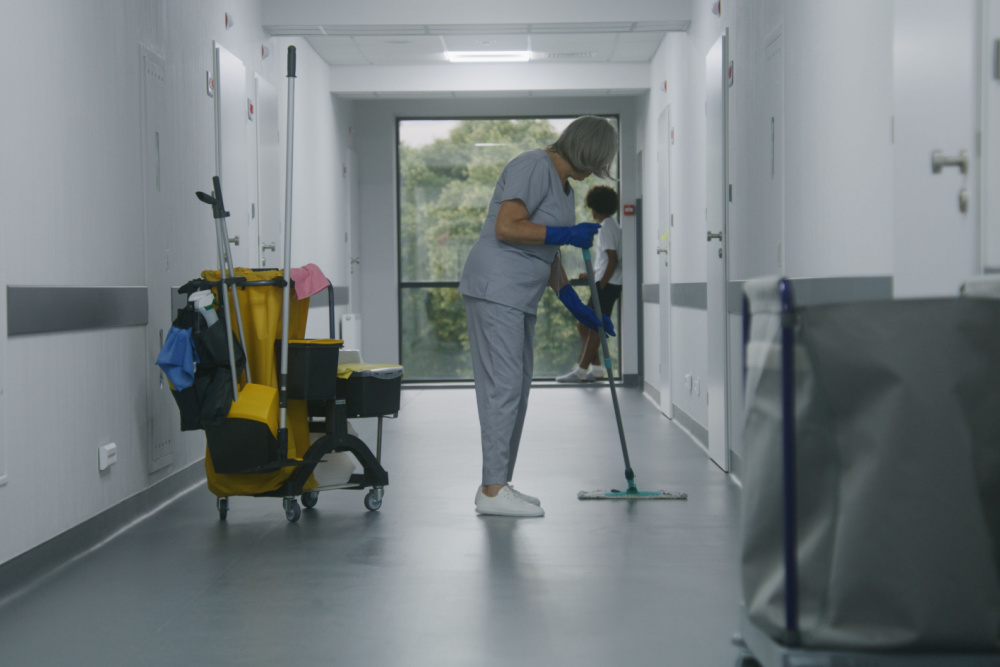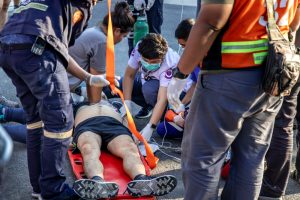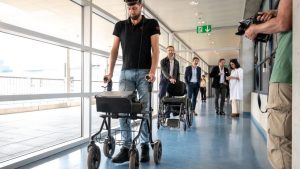In a historic moment for global health advocacy, the United Nations General Assembly (UNGA) recently embraced a groundbreaking resolution led by the Philippines. The resolution is titled “Sustainable, Safe, and Universal Water, Sanitation, Hygiene (WASH), Waste, and Electricity Services in Health Care Facilities”. It not only underscores the urgent need for comprehensive services in healthcare settings. It also marks a collaborative effort by nations worldwide.
The resolution, supported by a core group comprising Hungary, Colombia, Egypt, Nepal, and Poland, is poised to address critical gaps in water, sanitation, hygiene, waste management, and electricity access in healthcare facilities on a global scale.
Three Key Areas of Action
The resolution articulates a multifaceted approach, outlining three fundamental areas necessitating immediate attention. They are:
- The integration of WASH, waste, and electricity services into health planning, programming, financing, and monitoring at all levels
- Regular monitoring and reviewing of progress with an emphasis on strengthening accountability
- The development and empowerment of the health workforce to deliver and maintain WASH, waste, and electricity services while practising good hygiene
This comprehensive strategy acknowledges the interconnectedness of these elements in fostering effective healthcare delivery.
Global Support and Core Group
The inclusion of Hungary, Colombia, Egypt, Nepal, and Poland in the core group supporting the resolution signifies a collective recognition of the urgency to address deficiencies in healthcare facilities worldwide. These nations each contribute their unique perspectives and experiences. Additionally, they have committed to collaborative efforts to bridge critical gaps and enhance services. The resolution is a testament to the global community’s dedication to advancing the health agenda, particularly in achieving universal access to essential services by 2030.
Ambassador Leila Lora-Santos’ Introduction
Ambassador Leila Lora-Santos is the chargé d’affaires of the Permanent Mission of the Philippines to the United Nations. She introduced the resolution with a stark acknowledgement of persistent challenges despite progress since the 2019 World Health Assembly resolution. She expressed deep concern over statistics revealing that one in five healthcare facilities lacks basic water and sanitation. Additionally, one in two lacks basic hand hygiene, one in four does not segregate healthcare waste, and one billion people access healthcare facilities without reliable electricity.
Crucial Role of WASH, Waste, and Electricity Services
Lora-Santos underscored the pivotal role of fully functioning WASH, waste, and electricity services in preventing infections, reducing antimicrobial resistance, ending preventable maternal and newborn deaths, and responding effectively to outbreaks and emergencies. The resolution stands as a clarion call for urgent and concerted efforts to strengthen multilateral collaboration, consolidating member-state commitments, leadership, and investments in healthcare infrastructure.
Core Group’s Intent
The core group was led by Ambassador Lora-Santos. They expressed their intent to integrate discussions on healthcare facilities into other high-level UN deliberations. In particular, those related to Universal Health Coverage, Antimicrobial Resistance, and interlinkages across the Sustainable Development Goals (SDGs). This signifies a commitment to aligning healthcare improvements with broader global health objectives, ensuring a holistic and sustainable approach.
Philippines and Hungary’s Leadership
The Philippines and Hungary led the resolution’s initiation and negotiation process. Both countries were co-chairmen of the Group of Friends in support of WASH in healthcare facilities. The leadership of these nations was also supported by the World Health Organization teams from New York and Geneva. Consequently, it underscores the commitment to addressing the inadequacies in WASH and related services in health facilities globally.
Conclusion
The adoption of this resolution by the UNGA marks a historic leap toward achieving universal access to essential healthcare services. The collaborative efforts of the core group underscore the global community’s commitment to addressing critical gaps in water, sanitation, hygiene, waste management, and electricity access in healthcare facilities. The resolution stands as a testament to the world’s collective determination to prioritise and invest in healthcare infrastructure. Ultimately, they aim to create a healthier, more resilient world by addressing the foundational elements of effective healthcare delivery.














